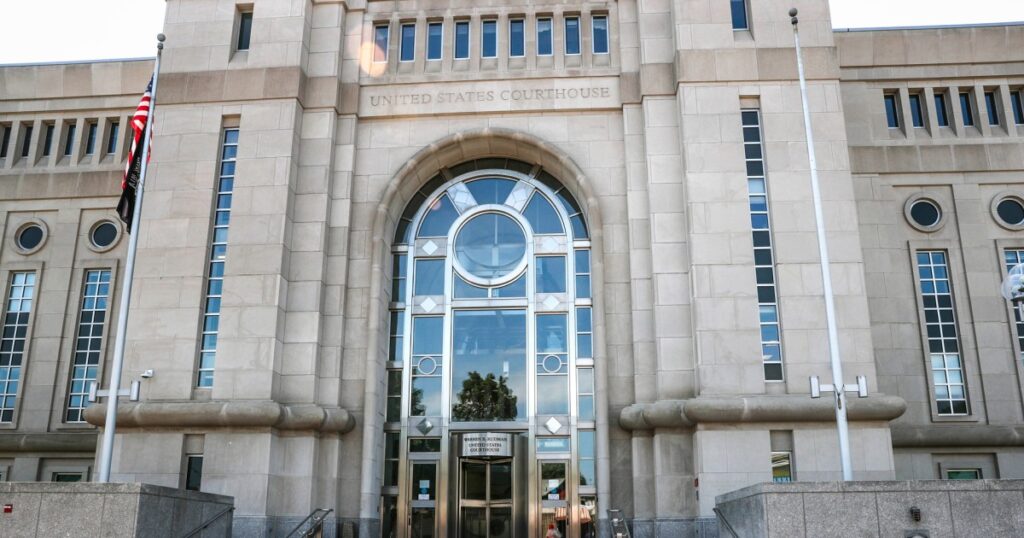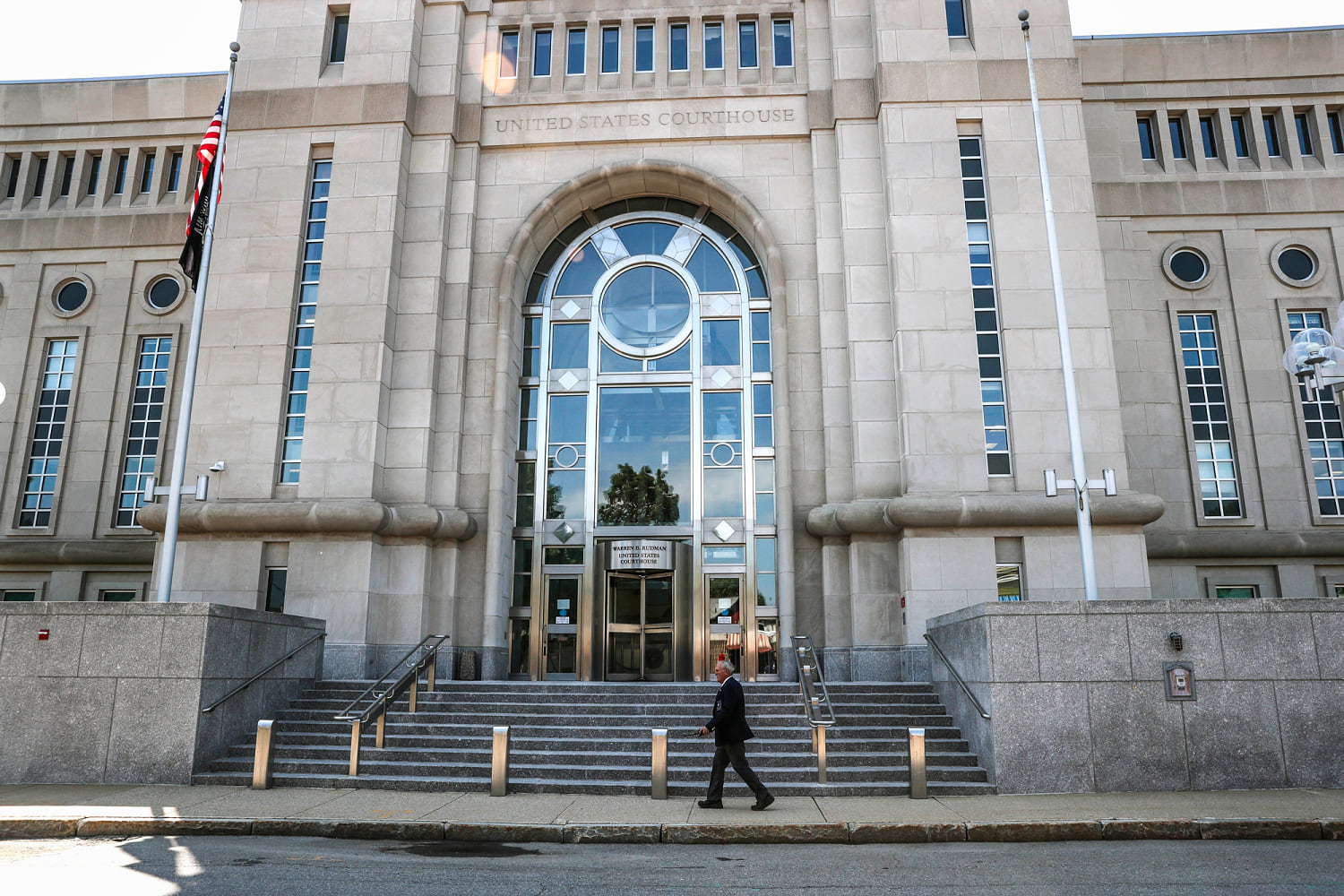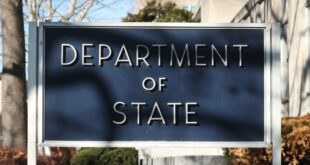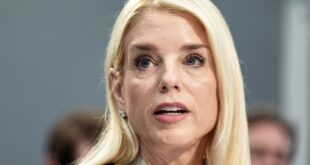

CONCORD, NH — A federal judge in New Hampshire granted class-action status to a lawsuit seeking to protect babies who would be denied birthright citizenship by the Trump administration and granted a temporary block of the order restricting birthright citizenship from going into effect throughout the country.
The suit was brought on behalf of a pregnant immigrant, immigrant parents and their infants and had sought class action status for all babies around the country who would be affected by Trump’s executive order and their parents.
Cody Wofsy, the lead attorney on the case with the American Civil Liberties Union, argued for class-action status in front of U.S. District Judge Joseph Laplante Thursday morning, stating that their clients would suffer irreparable harm by being denied birthright citizenship, a claim with which the judge found credible.
Laplante ordered during the hearing that class-action status be certified in the case but only for the babies who would be impacted by the restrictions, not for the parents.
He also ordered a preliminary injunction temporarily blocking Trump’s order from going into effect, but stayed his order for seven days, allowing the government time to appeal.
“Today, the court certified a class nationwide of children who are impacted by the President’s executive order and enjoined it from going into effect on July 27 this is going to protect every single child around the country from this lawless, unconstitutional and cruel executive order,” Wofsy said at a news conference after the hearing. “This is going to protect every single child around the country from this lawless, unconstitutional and cruel executive order.”
Attorneys for the Department of Justice had argued that the relief the plaintiffs were seeking in their case was too broad and challenged whether the requirements for class action status had been met. The department also argued that the request for the preliminary injunction and class status were premature and argued for time to appeal.
The Department of Justice and White House did not immediately respond to request for comment on the judge’s order.
In a previous statement before Thursday’s hearing, White House spokesperson Abigail Jackson told NBC News, “The Trump Administration is committed to lawfully implementing the President’s Executive Order to protect the meaning and value of American citizenship and which restores the Fourteenth Amendment to its original intent.”
Laplante said depriving a person of the longstanding right of birthright citizenship was “irreparable harm” and that birthright citizenship was “the greatest privilege that exists in the world.”
The hearing comes as the American Civil Liberties Union and other organizations filed a new round of lawsuits in late June that seek class-action status after the Supreme Court limited the ability of judges to block orders nationwide through other means, known as nationwide injunctions.
The Supreme Court did not decide on the merits of the Trump administration’s birthright citizenship order, but said it could begin to go into effect on July 27, barring further action from the courts.
Under Trump’s plan, birthright citizenship would be limited to those who have at least one parent who is a U.S. citizen or permanent resident. The order also denies citizenship to children whose mothers are temporarily in the United States, including those visiting under the Visa Waiver Program or as tourists, or who are students and whose fathers are not citizens or lawful permanent residents.
That is at odds with the widely accepted understanding of the Constitution’s 14th Amendment, which grants citizenship to anyone born in the United States, with a few minor exceptions.
“Every court to have looked at this cruel order agrees that it is unconstitutional,” Wofsy, the deputy director of the ACLU’s Immigrants’ Rights Project and lead attorney in the case, said in a statement announcing the lawsuit in late June. “The Supreme Court’s decision did not remotely suggest otherwise, and we are fighting to make sure President Trump cannot trample on the citizenship rights of a single child.”
“This executive order directly opposes our Constitution, values, and history, and it would create a permanent, multigenerational subclass of people born in the U.S. but who are denied full rights. No politician can ever decide who among those born in our country is worthy of citizenship — and we will keep fighting to ensure that every child born in the United States has their right to citizenship protected,” Devon Chaffee, executive director of the ACLU of New Hampshire, said in the statement at the time.
Shortly after taking office in late January, President Donald Trump issued an executive order limiting birthright citizenship, which he called “Protecting the Meaning and Value of American Citizenship.”
As a result, nearly two dozen states had filed lawsuits against the Trump administration contesting the order, arguing that it violates the 14th Amendment, which says, “All persons born or naturalized in the United States, and subject to the jurisdiction thereof, are citizens of the United States and of the State wherein they reside.”
The Supreme Court’s decision last month restricted judges’ authority to block presidential orders nationwide, as opposed to just within their jurisdictions. But it allowed for judges to issue such nationwide decisions in class-action cases, leading immigrant rights organizations and others to file several additional legal challenges to the birthright citizenship order that are now moving through the courts.
 Latest World Breaking News Online News Portal
Latest World Breaking News Online News Portal






